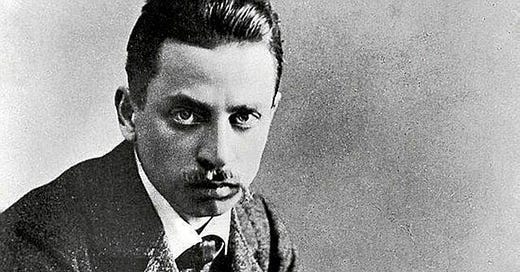I’m coming up to the finish of my semi-serious reading of The Notebooks of Malte Lordis Brigge by Rilke. I get it. Well, at least I get the gist and flavor of this book and I have to say that I’ve been spoiled by Nabokov. Still, the interior life of Rilke’s characters / self is extraordinary. He takes the simplest occurrences…
Keep reading with a 7-day free trial
Subscribe to Stoic Observations to keep reading this post and get 7 days of free access to the full post archives.





